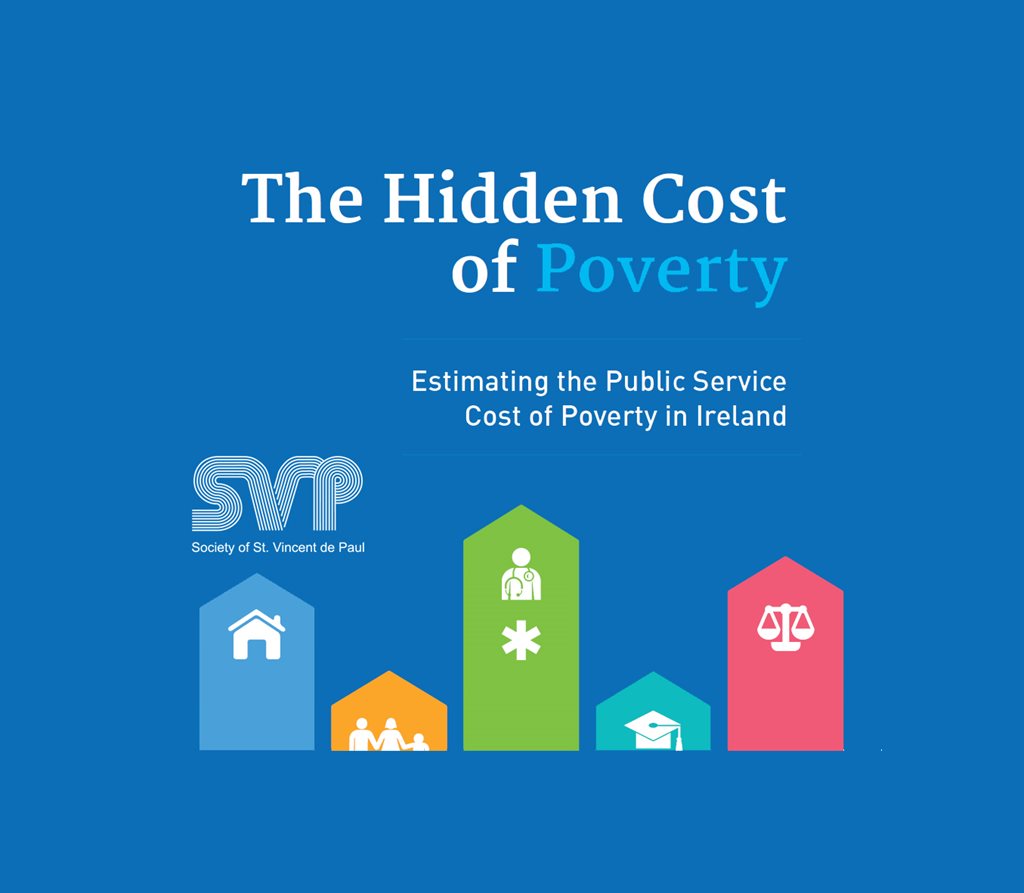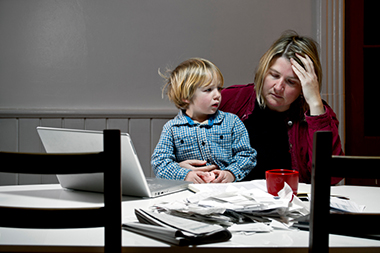
 What is the cost of poverty in Ireland today?
What is the cost of poverty in Ireland today?Data released by the CSO last month shows that in 2019 (the latest year for which we have data) the number of people living in enforced deprivation increased by almost three percentage points to 18% [1]. For lone parents, 45% went without essentials such as adequate food, heat or clothing. Likewise, for people unable to work due to a permanent illness or disability, just over 43% were living without the basics they need.
Primarily, the cost of poverty is borne by people who are suffering with hardship and disadvantage. With the cost of living outstripping many people’s incomes, decisions have to be made: to have enough heating that week or get a food shop in, or whether to delay the rent payment or the utility bill. These trade-offs have immediate consequences and costs that build up over time – poor physical health, stress and worry, the scarring effects of poverty on children as they grow up.
We also see the cost of poverty in our public finances. In our recently published research ‘the Hidden Cost of Poverty’, we uncovered that around €4.5 billion is spent every year due to the impact of poverty. In other words, if we invested now to eradicate poverty, the government would have an additional €4.5 billion to spend, more than the respective budgets of housing, justice, transport and agriculture.
But we believe it is possible to create a society without poverty and deprivation. First, we need this to be set out as an explicit target for government with a legal basis. For that we need to legislate for a target of No Poverty by 2030. This is already enshrined as a target in the Sustainable Development Goals but building it into Irish law would ensure that the Government can be held accountable for delivering on it.
To make sure that we reach the target of eradicating poverty, we need to guarantee everyone an adequate income. This year, that is calculated to be €249 a week for a single adult (when they are also supported with their housing costs) [2]. The current social welfare rate for a single adult is €203 – the discrepancy between those rates is what leads to immediate hardship as well as long-term challenges. While the Programme for Government contains a commitment to protect core welfare rates, we need the government to go further and increase them. Likewise, the current level of the minimum wage is inadequate for many who must meet the high cost of living in Ireland. For parents and especially lone parents, the cost of childcare means that taking on work and increasing hours can become a delicate balance in terms of time and money. To make sure that work pays, the government must honour its commitment in the Programme for Government and instruct the Low Pay Commission pursue a path to a Living Wage over the coming years. It must also make sure that childcare is available and affordable for all those who need it, and in the meantime (due to Covid-19 restrictions and other factors) support parents who need to stay home to care for their children with an adequate income.
 Housing must be tackled as a priority by investing in publicly built social housing. This would channel the vast amounts currently spent by government into a sustainable solution for low income renters and a collective asset for society, rather than purely providing an income to landlords. For renters with slightly higher incomes a National Affordable Cost Rental option would provide badly needed housing that is cost neutral for government. The current housing and homelessness crises show that private rent is not the answer to Ireland’s housing needs: it leads to a proliferation of homes that are unaffordable for people on average, let alone low, incomes. Using the PRS as a response to housing need creates a spending trap for renters and for government.
Housing must be tackled as a priority by investing in publicly built social housing. This would channel the vast amounts currently spent by government into a sustainable solution for low income renters and a collective asset for society, rather than purely providing an income to landlords. For renters with slightly higher incomes a National Affordable Cost Rental option would provide badly needed housing that is cost neutral for government. The current housing and homelessness crises show that private rent is not the answer to Ireland’s housing needs: it leads to a proliferation of homes that are unaffordable for people on average, let alone low, incomes. Using the PRS as a response to housing need creates a spending trap for renters and for government.
At SVP we see education as a key route out of poverty, but in the last six months we have seen educational inequality exacerbated as children moved to learning from home. Many didn’t have laptops, broadband, a space to work from and enough food at home – their learning will have been severely limited this year. As we approach a new school year the cost of school, including books, uniforms, transport and ‘voluntary’ contributions will also be weighing heavily on low income families. As a priority, we need a well-resourced taskforce to implement measures that will support children and young people across both DEIS and non-DEIS schools to prevent further educational disadvantage from Covid-19. We also need to make sure that school is genuinely free to attend and ‘voluntary’ contributions are no longer necessary by restoring school capitation grants to 2010 levels, as well as providing adequate family income through supports such as Child Benefit and Back to School Clothing and Footwear Allowance.
All the policy measures outlined above [3] are investments that would lead to savings: eradicating poverty is a long term strategy that is the right thing to do for every person living with economic hardship, but it is also the most sensible economic choice. The ongoing pandemic and the upcoming climate crisis have laid bare that short term choices are just not good enough. The job of government is now to start acting for our long-term wellbeing and investing upfront to prevent poverty.